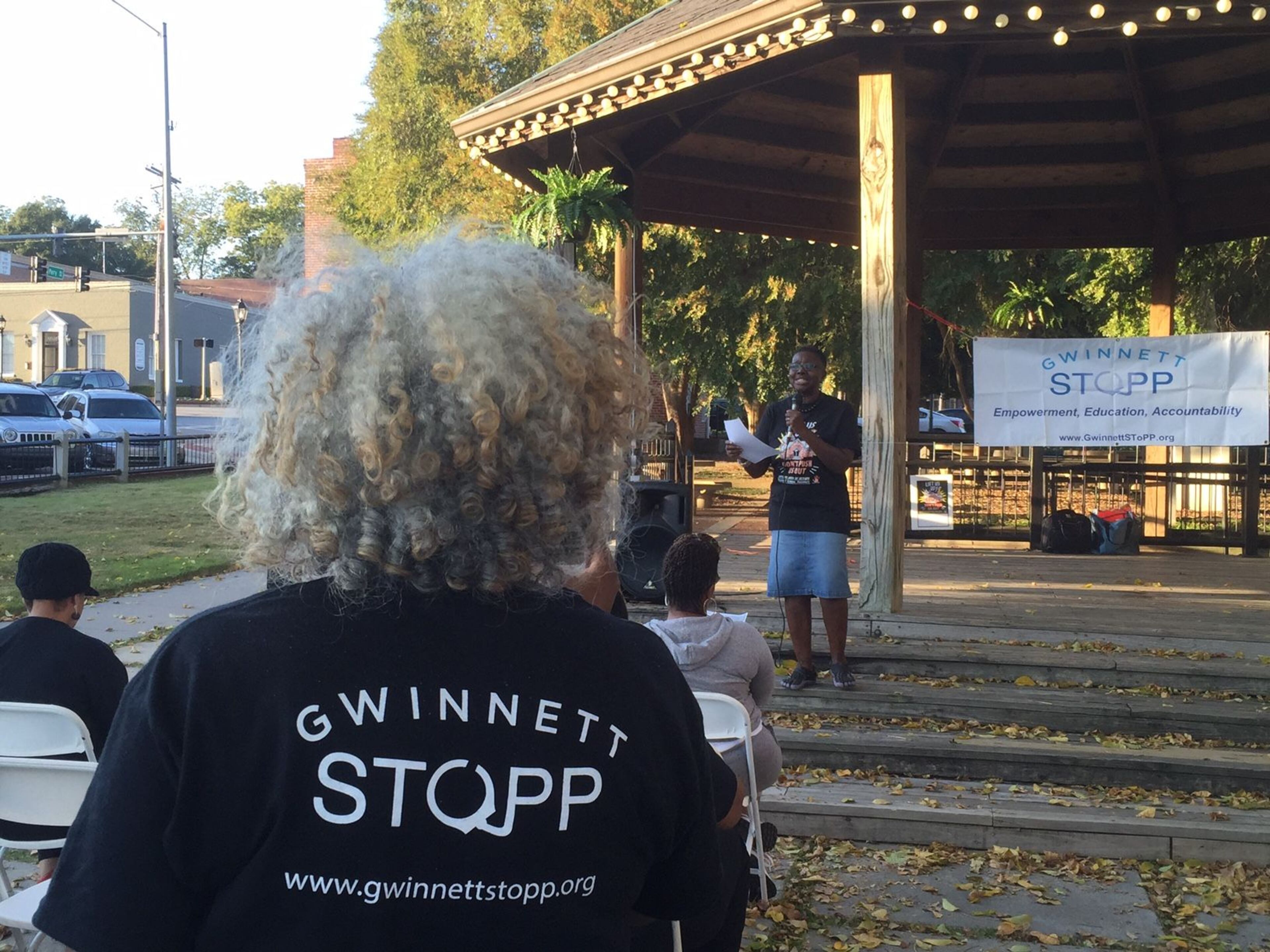Gwinnett far outpaces metro Atlanta in alternative school assignments

After months of discussion, Gwinnett County’s school board last week took what they described as the important step of approving a detailed plan to improve student behavior, increase campus safety and better student outcomes.
But that was overshadowed by a disturbing data point shared during the board meeting: Gwinnett sent more students to its alternative schools than the Atlanta, Clayton, Cobb, DeKalb and Fulton school districts combined in 2018 and 2019, the last full years of school before the coronavirus pandemic. Data from more recent years is not available on the state education website.
Gwinnett, the largest district in Georgia, had about 189,000 students each of those years — the five districts had 444,000. Gwinnett assigned 1,393 students to alternative schools in 2019 compared to 1,277 in the other districts. A higher ratio of Gwinnett students were assigned to alternative schools that year, which was more than the other metro Atlanta districts researched by Gwinnett officials.
“This disparity makes my chest tight,” board member Everton Blair said. “It’s so preposterous that it doesn’t seem very believable.”
Board member Karen Watkins said: “We need to see the numbers to show this is dramatically decreasing.”
Staff agreed.
Deputy Superintendent Nakia Towns said all assistant principals received that information and were “moved by the fact that we are extreme outliers.”
Gwinnett has two GIVE Centers, alternative schools geared at improving students’ behaviors that “precluded them from attending traditional school” with the hope they can return. Critics of exclusion as discipline argue suspending or expelling students can create a barrier to improvement and possibly even to education itself.
Mariell Hunt said his daughter experienced that barrier in 2019. She was suspended during her sophomore after unknowingly breaking a rule by visit a teacher at her old middle school. Hunt said staff dodged his concerns over his daughter, who has special needs, missing five days of class.
“It made her feel like school wasn’t a good place for her. It made her feel like school wasn’t a good fit,” he said.
To help reduce the number of students being sent to alternative schools, Gwinnett is focusing on restorative practices, which emphasize intervention, relationship-building and self-reflection. That includes teaching behavioral expectations through social emotional learning lessons and hiring behavioral coaches.
Gwinnett’s “Blueprint for the Future” plan lays out specific benchmarks, including the elimination of discipline disproportionality by the end of the 2026-2027 school year. Students who are Black, boys, disabled or economically-disadvantaged face higher rates of discipline than their representation in the student body.
The over-discipling of Black students has led to calls from some for reform since at least the early 2000s, when Marlyn Tillman’s son was in the district. She led efforts against excessive discipline and founded the Gwinnett Parent Coalition to Dismantle the School to Prison Pipeline.
Tillman wasn’t surprised Gwinnett outpaced other districts in alternative school assignments, but she was “cautiously optimistic” for some of the changes coming. She said the district needs to invest in expert help and training to implement new practices.

Not everyone agrees with reform efforts: The top responses when the district solicited feedback advocated against proposed changes. Some mentioned teacher concerns over student behavior.
“Some folks in the community say we’re too soft on discipline. Some folks are saying we’re not addressing the true needs of our students,” Eric Thigpen, Gwinnett’s executive director of academic support, said. “We will maintain high expectations for student behavior and conduct. Nothing’s changed there.”
The Southern Poverty Law Center honed in on Gwinnett years ago because of its discipline disproportionality. It now provides free assistance in tribunals for students facing suspensions of 10 or more days or expulsion.
Claire Sherburne, a SPLC attorney, said a tribunal can be traumatic.
“It’s still a child sitting there, listening to teachers and administrators talk about their behavioral history, talk about how ‘bad’ they are in the eyes of the teachers or administrators,” Sherburne said, noting the tribunal office is in a GIVE Center across the street from the county jail.
Michael Tafelski, another SPLC attorney, said traditional punishments aren’t effective discipline.
“If the intent of discipline is to teach students how to change behaviors or to learn from mistakes or to engage openly and honestly with the way that their behavior may have impacted someone else, a system that is built on punishment shuts all of that down,” he said.



